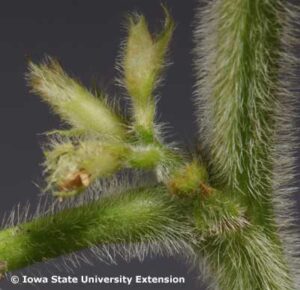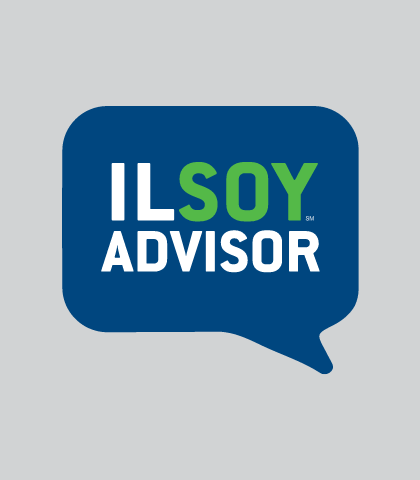If you were to sit down and ask yourself, “When do I apply all of the inputs to my soybean crop?” What would be your answer? Most of us would probably say within the first 30 days of that soybean crop being in the soil. But why is that when we are only 25-30 percent through the growing season? There are so many other events that could take place. For example, weather events, disease and insect infestations, in addition to that critical grain fill period. Getting the crop off to a great start is very important, but we need to make sure we finish the crop.
Many variables are considered when thinking about finishing a soybean crop. Those include:
- Weather is by far the most critical as we cannot produce a crop without adequate sunshine and water.
- Weed Control – Weed-free fields are important so that we do not have other plants competing for the same sunlight, water, and nutrients as the soybean crop.
- Proper Crop Nutrition and Plant Health is something that we can help maximize both at the beginning of the season, but also during the season.
So, which of these variables can we manipulate after the first 30 days of the growing season to finish the season strong? Proper nutrition and plant health is the only thing we can manipulate as our weed control should be taken care of already. Maximizing proper nutrition and plant health while also maximizing return on investment (ROI) is typically accomplished at the R3 growth stage with a fungicide application. Beck’s Hybrids Practical Farm Research (PFR) program has shown that a fungicide application at the R3 growth stage provides a $17.68 advantage across seven years at multiple locations. Whereas the same application at R2 resulted in $3.91 loss and R4 resulted in $2.53 loss. However, this may raise multiple questions such as:

Image 1: Soybean in the R3 growth stage.
How do I know if my soybean plant has reached the R3 growth stage? Soybean plants have reached the R3 growth stage when there is a 3/16” pod at one of the four uppermost fully developed nodes. R3 is referred to as beginning pod and is arguably the best time to control
diseases. Image 1 depicts a R3 soybean pod.
So why does the R3 growth stage show a large advantage? The large advantage is likely because approximately 70% of a soybean plant’s yield comes from nodes 6 to 13. Those nodes are typically present at R3, and this application will help to protect these nodes from yield robbing diseases. Moreover, applying a fungicide at R3 helps mitigate any stress that may occur at the R4 growth stage which is the single most critical growth stage for soybean yield determination.
What can I do to maximize my soybean fungicide application?
- Carrier Rate – Most fungicide products are locally systemic. Spraying at least 20 gallons/acre is crucial for proper coverage.
- Time of Day – Spraying in the morning when dew is present on the leaves may help spread the fungicide over the surface of the leaf, helping to improve coverage. In addition, stomates on soybean leaves are open in the morning when it is cooler. This can improve fungicide efficacy by allowing the fungicide to get into the plant easier.
- Condition Your Water – Hard water with a high pH can negatively impact the effectiveness of fungicide applications. Balancing the water in the tank is a very important step in the spraying application.
For more information on these studies, click the link below
Beck’s Hybrids PFR Proven Fungicide Applications
Summary
To maximize soybean grain yield and return on investment, producing a soybean crop is a marathon and not a sprint. Proper crop nutrition, plant health, and weed control is just as important at the end of the growing season as they are at the beginning of the growing season. We must ensure we have food at the table throughout the whole growing season so the soybean crop can maximize branching, number of nodes, number of pods, number of seeds, and finally seed size. I will leave you with one question. What are you going to do to your soybean crop to make it a marathon and not a sprint?




 and then
and then